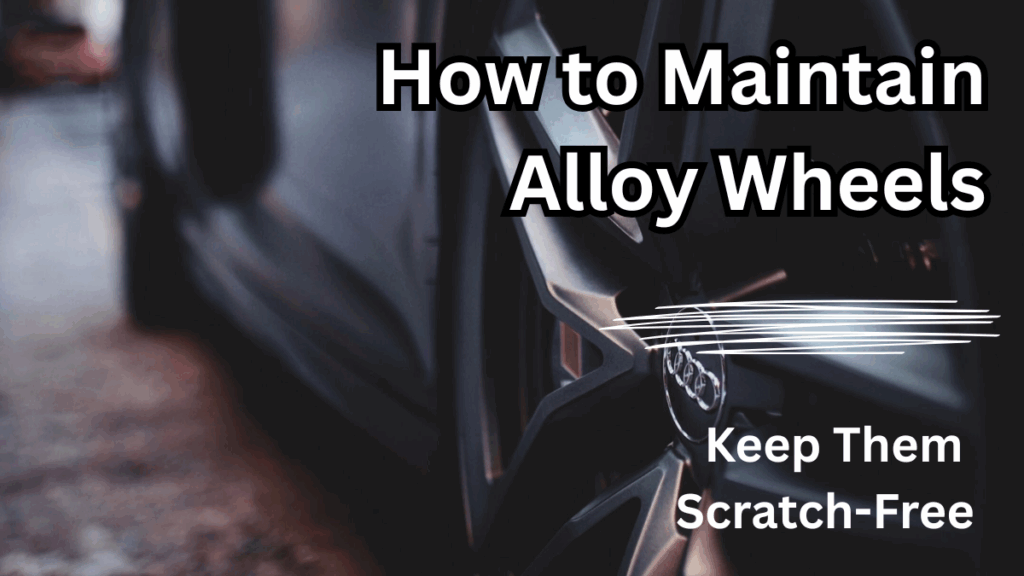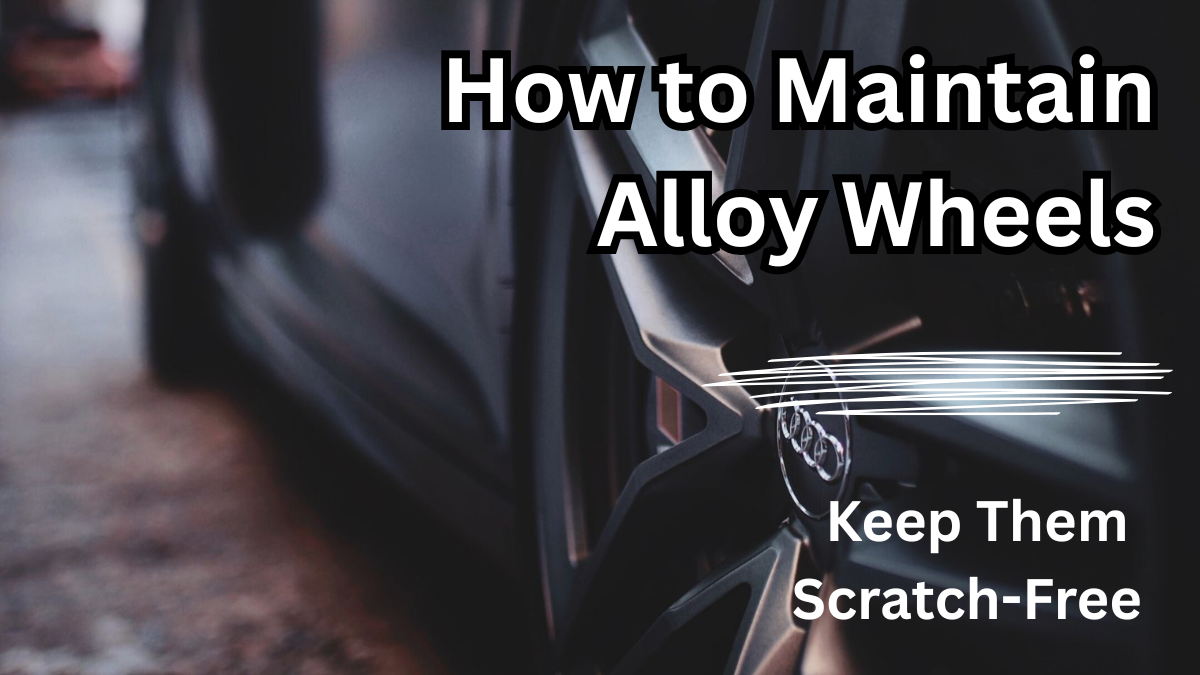Your car’s alloy wheels aren’t just for performance — they make a serious statement. Sleek, shiny, and stylish, they can transform your ride’s look in seconds. But here’s the thing: alloy wheels are magnets for scratches, brake dust, and road grime. The good news? With a little attention and the right care techniques, you can keep your alloys looking brand new.
Whether you’re a weekend car detailer or a daily commuter, here’s a human-friendly guide on how to maintain alloy wheels and ensure they stay scratch-free.

Why Alloy Wheel Maintenance Matters
Alloy wheels are typically made from an aluminum or magnesium blend, making them lightweight and attractive — but also more prone to cosmetic damage. Scratches and corrosion not only affect appearance but can also lead to structural damage over time.
Common Issues Faced by Alloy Wheel Owners:
-
Scratches from curbs
-
Brake dust buildup
-
Corrosion from road salt or water
-
Dullness due to oxidation
Best Alloy Wheel Cleaning Tips
One of the first steps in wheel care is regular cleaning. Here are some essential alloy wheel cleaning tips to keep them gleaming:
What You’ll Need:
-
pH-balanced wheel cleaner
-
Microfiber cloth or soft sponge
-
Soft-bristled brush
-
Wheel wax or sealant
Step-by-Step Cleaning Guide:
-
Rinse first using a hose or pressure washer to remove loose dirt and debris.
-
Spray cleaner generously using a non-acidic, pH-balanced cleaner to avoid damaging the finish.
-
Use soft brushes to gently scrub between spokes and the rim edge.
-
Wipe with a microfiber cloth to avoid scratching the surface.
-
Dry thoroughly to prevent water spots that can cause corrosion.
-
Apply wheel wax to seal the surface and make future cleaning easier.
Scratch Prevention: Keeping Your Alloys Safe
Prevention is the key to long-term protection. Here are practical scratch prevention tips that work:
Do’s:
-
Park carefully to avoid curbs
-
Use ceramic or Teflon-based wheel coatings
-
Rotate your tires regularly to even out wear
-
Install rim protectors if you often drive in tight city spaces
Don’ts:
-
Don’t use harsh or acidic cleaners
-
Avoid automatic car washes with heavy brushes
-
Don’t neglect regular wheel checks
Maintenance Frequency Table
| Task | Recommended Frequency |
|---|---|
| Deep cleaning | Every 2 weeks |
| Quick rinse | Weekly |
| Wax or sealant application | Monthly |
| Scratch inspection | Bi-monthly |
| Tire pressure check | Monthly |
Extra Tips: Go the Extra Mile
-
Clay bar treatment is great for removing bonded contaminants.
-
Use separate cleaning tools dedicated only to wheels to avoid cross-contamination with paintwork.
-
Choose the right time to clean — avoid direct sunlight to prevent water spots.
FAQs
1. Can scratches on alloy wheels be repaired at home?
Minor scratches can be fixed using an alloy wheel repair kit. For deep gouges, it’s best to consult a professional.
2. How often should I clean my alloy wheels?
It’s ideal to clean them every two weeks. However, if you drive in areas with a lot of grime or salt, weekly cleaning may be necessary.
3. Is it okay to use regular soap on alloy wheels?
No. Regular soaps can be too harsh or not effective enough. Use a dedicated pH-balanced wheel cleaner.
4. Do wheel protectors really work for scratch prevention?
Yes. Rim protectors are affordable and highly effective in preventing curb rash and minor scratches.
Final Thoughts
Knowing how to maintain alloy wheels isn’t just about aesthetics — it’s about preserving your car’s value and ensuring safety. With a regular care routine, mindful driving, and the right products, you can enjoy sparkling alloys free from scratches and damage.
Take care of your wheels, and they’ll return the favor with years of sharp, head-turning performance.
Click here to learn more
